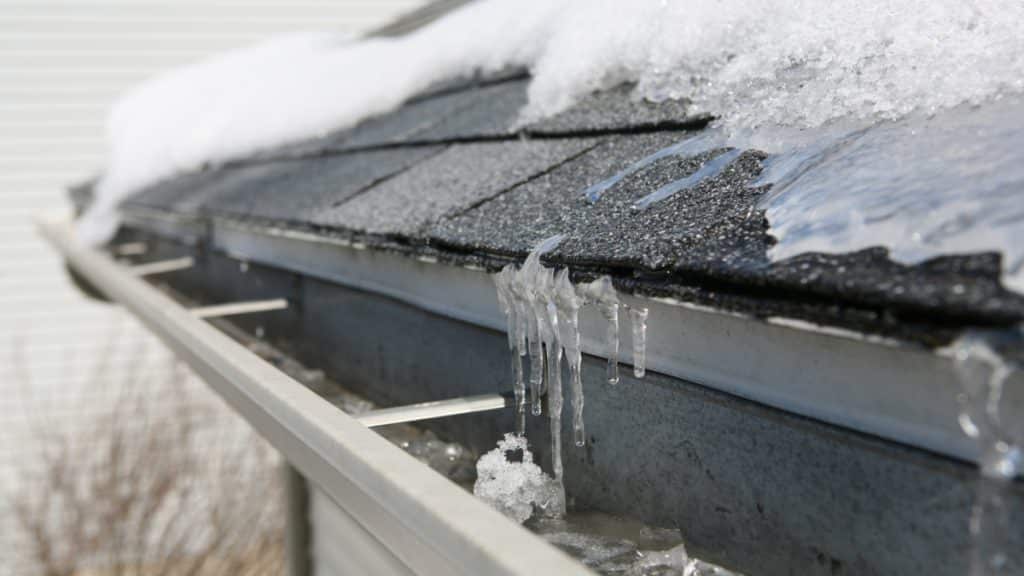Winter in Delaware can bring harsh weather, including snow, ice, and freezing temperatures. These conditions take a toll on homes, especially roofs. To ensure a home stays safe and secure during the colder months, proactive roof maintenance is essential. Following a reliable maintenance checklist can help homeowners protect their investments and avoid costly repairs.
1. Inspect the Roof Before the Snow Hits
A thorough roof inspection is a critical first step in any Delaware roof maintenance checklist for winter preparation. Checking for damaged shingles, cracked flashing, or any signs of wear is essential to prevent minor issues from escalating. Harsh winters often bring heavy snow and freezing rain, which can exploit even the smallest vulnerabilities in a roof, leading to more significant problems over time.
Homeowners should also look for debris, like leaves or branches, that may have accumulated during the fall. Clearing these can prevent clogged gutters and reduce unnecessary stress on the roof. Regular inspections and timely maintenance are key to ensuring your roof remains in optimal condition.
2. Keep Gutters and Downspouts Clear
Gutters play a vital role in protecting roofs from water damage. When they’re clogged with leaves, snow, or ice, water can back up onto the roof, leading to leaks or ice dams. Cleaning gutters before winter ensures that melted snow drains properly.
For added protection, consider installing gutter guards to prevent debris buildup during the season. Regularly checking gutters throughout the winter can help address any unexpected blockages caused by storms.
3. Address Ice Dams Immediately
Ice dams are one of the most common problems Delaware homeowners face during winter. They occur when warm air from the attic melts snow on the roof, which then refreezes at the edges. Over time, this can cause water to seep under shingles and lead to leaks inside the home.
Proper attic insulation and ventilation maintain consistent roof temperatures, preventing ice dams. If ice dams form, use a roof rake or hire a professional to remove them carefully. Avoid chipping ice, as it can damage the roof.
4. Trim Overhanging Tree Branches
Overhanging branches can be hazardous during Delaware winter storms. Snow or ice may cause them to break, damaging shingles or gutters. Branches can also scrape the roof, speeding up wear over time.
By trimming trees around the property, homeowners reduce the likelihood of winter storm damage. This simple step not only protects the roof but also enhances overall safety around the home.
5. Schedule Professional Maintenance and Repairs
For more extensive issues or routine winter prep, professional roofing services are invaluable. Delaware residents benefit from scheduling inspections or repairs with experienced roofing contractors who understand the challenges of harsh winters.
Professionals can identify subtle problems that may not be visible to the untrained eye, such as hidden leaks or compromised flashing. Timely repairs can extend a roof’s lifespan and prevent more significant issues down the line. Scheduling regular inspections ensures the roof is in optimal condition for the season.
6. Monitor Attic Conditions for Better Roof Health
The state of the attic plays a crucial role in maintaining a healthy roof during winter. Poor insulation or inadequate ventilation can cause moisture buildup, increasing the risk of mold and rot. Uneven roof temperatures from these issues can also lead to ice dam formation. Regular attic checks for moisture, mold, or drafts help address problems early. Sealing gaps and improving ventilation keep the roof and attic balanced, reducing stress on both structures.
Taking these proactive steps can save Delaware homeowners from the frustration and expense of winter-related roof damage. By following a comprehensive Delaware roof maintenance checklist, they can enjoy peace of mind knowing their homes are prepared to withstand even the harshest conditions. Consistent maintenance, combined with professional support when needed, is key to a safe and secure winter season.
